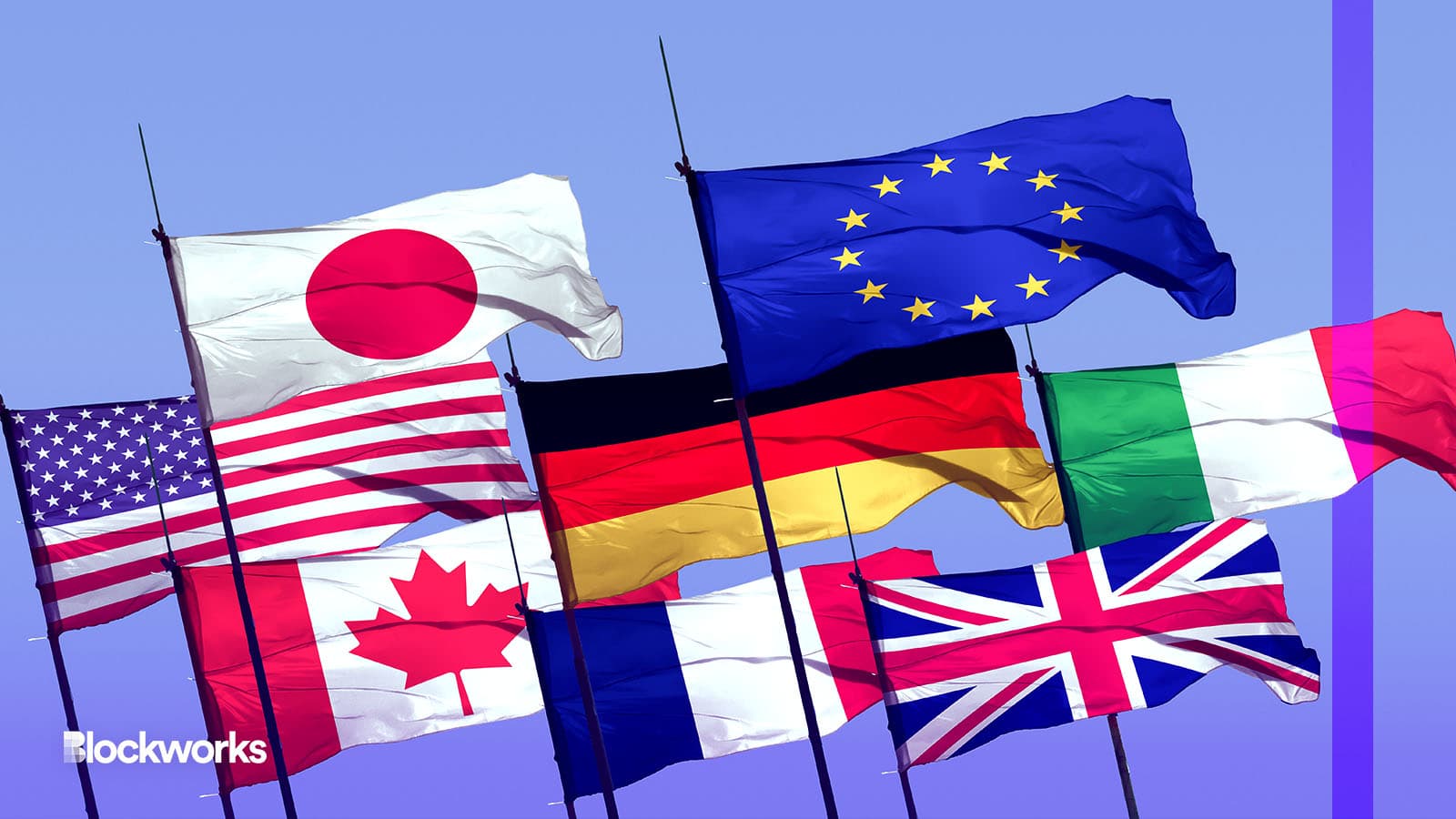G7 Members Likely To Discuss Stricter Crypto Regulation in May
Discussions will commence just days before the G7 summit in Hiroshima, Japan, and will involve talks surrounding the risks digital assets pose to the global financial system

Source: Shutterstock / Svet foto, modified by Blockworks
The Group of Seven (G7), consisting of the world’s largest industrialized democracies, is expected to discuss the adoption of stricter crypto regulations in two months’ time as attention on the nascent asset class mounts.
In a bid to promote what officials are calling transparency and consumer safeguards, the G7 will speed up discussions ahead of a meeting of finance ministers and central bankers in mid-May, Kyodo News reported Sunday.
Discussions will commence just days before the G7 summit in Hiroshima, Japan, which is expected to involve talks surrounding the risks digital assets pose to the global financial system.
The G7’s decision to prioritize stricter regulations on crypto could have wider implications for the industry and investors. Similar issues are expected to be discussed by finance ministers and central bankers from 20 major economies in Washington in mid-April, per the report.
It follows in the wake of FTX’s implosion in November, which prompted regulators to formulate stricter rules for exchanges and digital asset service providers as they sought measures to enhance transparency and accountability.
The G7, comprising Britain, France, Germany, Canada, Italy, Japan, the US and the EU is seeking the establishment of further regulations as well, recognizing digital assets via a legal framework.
Japan is one of the few member states within the G7 to have industry-related regulations in place, while the EU continues its work on MiCA, expected to govern digital assets in the bloc, and set to begin its 18-month transitional period in April.
Across the Atlantic, the US and Canada are attempting to retroactively apply existing financial regulations against the crypto industry as concerns mount over how to police the nascent asset class.
Moves from regulators, including the Securities and Exchange Commission against crypto firms like Ripple, have prompted industry participants to call for an exit from the US.
Get the news in your inbox. Explore Blockworks newsletters:
- The Breakdown: Decoding crypto and the markets. Daily.
- 0xResearch: Alpha in your inbox. Think like an analyst.






